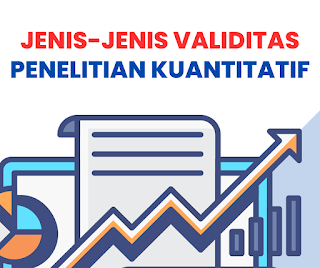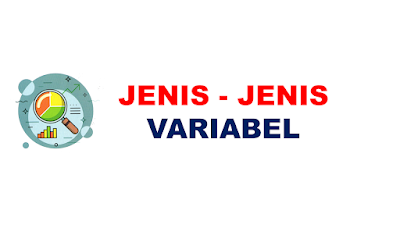Merancang Sebuah Studi Kualitatif
Menjelaskan framework kualitatif,
peneliti sering menggunakan istilah konstruktivis, interpretatif, feminis, dan
post-modernis. Pendekatan kualitatif yang sering digunakan adalah penelitian
naratif, fenomenologi, teori dasar, etnografi, dan studi kasus. Ciri – ciri
dari masing-masing pendekatan ini akan dijelaskan dalam tulisan ini. Salah satu
desain penelitian yang disampaikan penulis dalam bukunya yang
lain (diterjemahkan dari Creswell & Creswell, 2018, p. 12) ada
penelitian naratif, fenomenologi, grounded theory, etnograpi, dan
studi kasus. Semua jenis ini tujuannya adalah sama untuk menghasilkan
penelitian yang terbaik.
Karakteristik Penelitian Kualitatif
Dalam bab ini penulis menggunakan dua pengertian
penelitian kualitatif. Pertama pengertian dari Denzin dan
Lincoln (1994, 2000, 2005, 2011: hal 3), penelitian kualitatif adalah aktivitas
yang menempatkan pengamat di dunia. Penelitian ini terdiri dari serangkaian
praktik interpretatif dan material yang membuat dunia semakin terlihat. Praktik
ini mengubah dunia menjadi serangkaian representasi, termasuk catatan lapangan,
wawancara, percakapan, foto, kamera, dan memo untuk diri sendiri.
Pada tingkat ini, penelitian kualitatif melibatkan
pendekatan interpretatif dan naturalistik terhadap dunia. Artinya peneliti
kualitatif mempelajari segala sesuatu dalam latar alaminya, berupaya memahami,
atau menafsirkan, fenomena berdasarkan makna yang diberikan orang terhadap
fenomena tersebut (hal. 43). Menurut (ditermahkan dari Denzin &
Lincoln, 2008, hal. 4) kualitatif dikembangkan menggunakan dan dikumpulkan
dengan berbagai materi empiris – studi kasus personal empiris, intropeksi,
pengalaman hidup wawancara, artifaktual, produksi dan teks, observasi,
historikal, interaksional, dan visual teks - mendeskripsikan kebiasaan dan
permasalahan serta memahami kehidupan level individu.
 |
| John Creswell |
Kedua, penulis
mendefenisikan penelitian kualitatif dimulai dengan asumsi dan penggunaan
kerangka interpretasi/teori yang menginformasikan studi tentang masalah
penelitian yang membahas makna yang dianggap berasal dari suatu masalah sosial
atau kemanusiaan oleh individu atau kelompok. Untuk mempelajari masalah ini,
peneliti kualitatif menggunakan pendekatan pengumpulan data dalam lingkungan
alami yang sensitif terhadap orang dan tempat yang diteliti, dan analisis data
yang bersifat induktif dan deduktif serta menetapkan pola atau tema. Laporan
atau presentasi tertulis akhir mencakup suara peserta, refleksivitas peneliti,
deskripsi kompleks dan interpretasi masalah, dan kontribusinya terhadap
literatur atau seruan untuk perubahan (hal. 44).
Ada
perkembangan pengertian metode penelitian kualitatif seiring dengan berjalannya
waktu. Ini ditempatkan pada konteks sosial, politik, budaya, konteks peneliti
(hal. 44 – 45). Tabel 1 dalam review ini merupakan beberapa karakteristik umum
penelitian kualitatif, disusun bukan berdasarkan urutan kepentingan tertentu
(hal. 45).
- Natural setting. peneliti kualitatif mengumpulkan informasi
dari orang-orang terdekat, mengamati orang-orang yang diteliti dan
berperilaku sesuai dengan konteksnya. Penelitian ini dilakukan dengan tatap
muka (face to face).
- Researcher as key instrument. Mengumpulkan data dari dokumen,
mengamati perilaku, dan wawancara. Peneliti menggunakan instrumen
sendiri.
- Multiple method. Peneliti mengumpulkan berbagai bentuk
data, misalnya wawancara, observasi, dan dokumen.
- Complex reasoning through inductive and deductive
logic. Peneliti
kualitatif menggunakan keterampilan penalaran yang kompleks sepanjang proses
penelitian.
- Participant meaning. Peneliti tetap fokus mempelajari
makna yang diyakini partisipan mengenai masalah atau persoalan, bukan makna
yang dibawa peneliti.
- Emergent design. peneliti menggunakan desain yang fleksibel,
menyesuaikan dengan proses pengumpulan data.
- Reflexivity. Peneliti dengan jelas “memposisikan
diri” latar belakang, pengalaman budaya dan sejarah saat proses penelitian.
- Holistic account. Peneliti mengembangkan gambaran
kompleks tentang permasalahan atau isu yang diteliti. Peneliti tidak terikat
atas hubungan sebab-akibat yang erat antar aktor, namun mengidentifikasi
interaksi kompleks dari faktor dalam situasi apapun.
Tabel 1. Karakteristik Penelitian Kualitatif
|
Karakteristik
|
LeCompte & Scencul
|
Hatch (2002)
|
Marshall & Rossman)
|
|
Dilakukan di lapangan (field)
|
Ya
|
Ya
|
Ya
|
|
Peneliti sebagai instrument kunci
|
|
Ya
|
|
|
Menggunakan berbagai metode
|
Ya
|
|
Ya
|
|
Melibatkan penalaran komples antar induktif dan deduktif
|
Ya
|
Ya
|
Ya
|
|
Fokus pada perspektif, makna, dan pandangan subjektif partisipan
|
Ya
|
Ya
|
|
|
Terletak pada konteks atau pengaturan peserta/sosial/politik/historis
|
Ya
|
|
Ya
|
|
Melibatkan desain yang muncul dan berkembang
|
|
Ya
|
Ya
|
|
Reflektif dan interpretative
|
|
|
Ya
|
|
Menyajikan gambaran holistik dan kompleks
|
|
Ya
|
Ya
|
Kapan Menggunakan Penelitian Kualitatif
Menggunakan penelitian kualitatif karena ada isu
atau masalah yang ingin dieskplorasi, untuk mempelajari suatu kelompok atau
populasi, mengidentifikasi variabel yang tidak mudah diukur, dan mendengarkan
suara-suara yang dibungkam (hal. 48). Penelitian kualitatif digunakan ketika
ingin pertama memberdayakan individu (empower individuals)
berbagi cerita, mendengar suara mereka, dan meminimalkan hubungan kekuasaan
yang sering terjadi antara peneliti dan partisan dalam sebuah penelitian. Kedua,
ketika ingin menulis dalam gaya sastra yang fleksibel yang menyampaikan cerita,
puisi, tanpa batasan struktur penulisan akademis formal. Ketiga ketika menggunakan
penelitian kualitatif untuk menindaklanjuti penelitian kuantitatif dan
membantu menjelaskan mekanisme (explain the mechanism)
dan keterkaitan dalam teori atau model sebab akibat. Keempat, untuk
mengembangkan teori ketika teori bersifat parsial atau tidak memadai untuk
populasi tertentu. Kelima, menggunakan metode ini ketika pengukuran
kuantitatif dan analisis statistik tidak sesuai dengan permsalasahan (fit
the problem). Menurut (Guest, Namey, & Mitchell, 2013, hal.
22) bahwa menggunakan penelitian kualitatif ketika untuk identifikas dan
mengeksplore, deskripsi, evaluasi dan asesement. Pendapat ini menambah beberapa
alasan untuk menggunakan dengan metode kualitatif.
Studi yang Luar Biasa Membutuhkan dari 'Kami'
Penelitian kualitatif diperuntukkan bagi peneliti
yang bersedia melakukan hal-hal berikut (hal 49):
- Berkomitmen menghabiskan banyak waktu di lapangan.
- Terlibat dalam proses analisis data yang kompleks
dan membutuhkan waktu untuk mendapatkan dan memilah data ke dalam beberapa tema
atau kategori.
- Menulis dengan panjang dan perlu menunjukkan
berbagai perspektif.
- Berpartispasi dalam bentuk penelitian ilmu sosial
dan kemanusiaan yang tidak memiliki pedoman atau prosedur khusus yang tegas dan
terus berkembang serta berubah.
Proses Desain Studi Kualitatif
Penulis menyampaikan tiga poin utama dalam proses
desain studi kualitatif yaitu: pertama, pertimbang awal
sebelum memulai penelitian, kedua langkah-langkah yang
dilakukan selama melakukan penelitian, ketiga unsur-unsur yang
mengalir melalui seluruh tahapan proses penelitian (hal. 49 & 50).
Pertimbangan Awal (Preliminary Considerations)
Semua peneliti memulai dari suatu isu atau masalah,
memeriksa literatur dengan cara tertentu, mengajukan pertanyaan, mengumpulkan
data dan menganalisis, serta menulis laporan. Penulis sepakat dengan konsep
kongruensi metodologis (methodological congruence) yang
dikemukakan oleh Morse and Richards (2002) – bahwa tujuan, pertanyaan, dan
metode penelitian semuanya saling berhubungan sehingga penelitian tampak
sebagai suatu keseluruhan yang kohesif dan bukan terfragmentasi (hal. 50).
Denzin dan Lincoln (2011) menyebut peneliti sebagai “subjek multikultural” dan
memandang sejarah, tradisi, dan konsepsi diri, etika dan politik sebagai titik
awal untuk penelitian.
Langkah-langkah dalam Proses
Dalam proses peneliti membawa topik atau bidang
penelitian substantif, dan telah meninjau literatur tentang topik tersebut
(hal.51). Untuk mempelajari topik ini perlu membuat pertanyaan penelitian
terbuka (open-ended research questions) dan berbicara dengan beberapa
individu. Selanjutnya mengumpulkan berbagai sumber data (variety of sources
of data). Empat sumber dasar informasi kualitatif: wawancara, observasi,
dokumen, dan materi audio visual. Langkah berikutnya adalah menggunakan sumber
ini berdasarkan pertanyaan terbuka tanpa banyak struktur dan dengan mengamati
serta mengumpulkan dokumen. Setelah mengatur data, kemudian menganalisis (analyze) dengan
mengerjakan induktif apakah itu perspektif yang khusus ke perspektif yang umum,
seperti kode, kategori, dan tema. Kemudian mengerjakan dengan cara deduktif
untuk mengumpulkan bukti yang sesuai dengan tema dan interpretasi. Kemudian
saat menulis, bisa dengan berbagai bentuk narasi (form of
narrative). Selanjutnya melakukan analisis ke dalam tingkat abstraksi
berupa kode, tema, keterkaitan tema, hingga model data. Pada akhirnya, membahas
temuan dan membandingkan temuan dengan pandangan pribadi, literatur, dan
model-model baru.
Berikut ini adalah daftar tentang karakteristik
penelitian kualitatif yang “baik” menurut penulis (hal. 53-55):
- Peneliti menerapkan prosedur pengumpulan data yang
teratur
- Peneliti menyusun penelitiannya dalam asumsi dan
karakteristik pendekatan kualitatif terhadap penelitian.
- Peneliti menggunakan pendekatan penelitian
kualitatif. Untuk peneliti pemula direkomendasikan untuk menggunakan satu
pendekatan.
- Peneliti memulai dengan satu fokus atau konsep yang
sedang dieskplorasi.
- Studi penelitian ini mencakup metode terperinci,
pendekatan yang teratur terhadap pengumpulan data, analisis data, dan penulisan
laporan.
- Peneliti menganalisis data menggunakan berbagai
tingkat abstraksi.
- Peneliti menulis secara persuasif sehingga pembaca
merasakan “berada di sana” atau disebut dengan istilah verisimilitude.
- Peneliti mencerminkan sejarah, budaya dan
pengalaman pribadi peneliti.
- Penelitian kualitatif dalam penelitian yang
bersifat etis. Peneliti menyadari dan membahas dalam penelitian dengan etika
yang berlaku.
Tulisan ini adalah review buku dari Buku Qualitative
Inquiry and Research Design Choosing Among Five Approaches
(John W. Creswell and Cheryl N. Poth, 2007). Khusus pada
Chapter 3. Silahkan dibaca bukunya agar lebih bisa memahami.
Jika kalian membutuhkan
tutorial Aplikasi Pengolah Data seperti SPSS, STATA. CS-PRO, JASP, dll bisa
berkunjung ke Channel ini ya: EdukasiAppData













